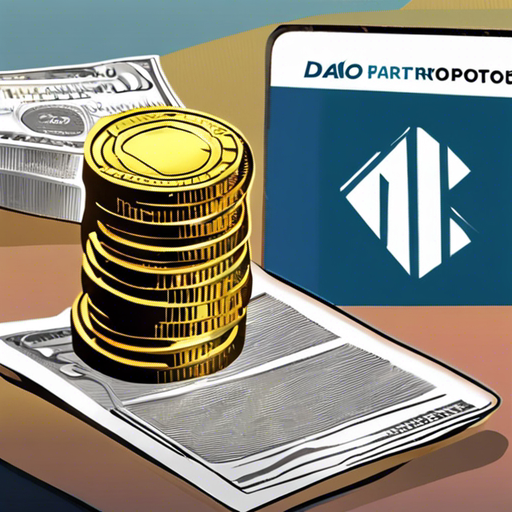BarnBridge Settles with SEC for Unregistered Offer and Sale of Structured Finance Crypto Product
The United States Securities and Exchange Commission (SEC) has issued a cease and desist order to BarnBridge, a decentralized finance (DeFi) protocol, for the unregistered offer and sale of a structured finance crypto product. BarnBridge allowed users to swap variable APYs from money markets for a fixed APY and rewarded liquidity providers with its governance token, BOND. The BOND token holders form the BarnBridge decentralized autonomous organization (BarnBridge DAO), which is the respondent in the SEC enforcement action.
The SEC states that BarnBridge DAO and its founders advertised “SMART Yield Bonds,” a structured investment product that paid investors a fixed rate of return from a pool of assets, called a “SMART Yield Investment Pool.” This pool swapped investors’ assets for yield-bearing assets from “third-party lending platforms.” Senior investors were guaranteed a fixed rate of return, while Junior investors were given a variable rate. If the rate of return was not high enough to pay out the full set of rewards for the Senior tranches, Junior tranche assets were used to compensate Senior investors.
The SEC’s enforcement action is the latest example of the differences between Web 1.0, 2.0, and 3.0, particularly in the context of DeFi, NFTs, DAOs, and Web 3.0. It is also a reminder that while Web 3.0 has started, the regulatory environment continues to evolve.
BarnBridge DAO and SMART Yield Bond Investors
If the rate of return was larger than necessary to pay Senior investors, the additional income was given to Junior tranche investors. This protocol ensured a fixed rate for Senior investors while also allowing Junior investors with higher risk appetite to gain more when revenue was higher.
As per the order, BarnBridge DAO charged SMART Yield Bond investors 5% of their profits as a fee, which was directed to a smart contract called the “BarnBridge DAO Treasury.” During the time the protocol was operational, the DAO voted to distribute these treasury funds to cover a variety of business costs, such as blockchain transaction fees, website hosting fees, programmer contracts, and the salaries of Ward and Murray.
The SMART Yield Investment Pools are “Unregistered Investment Companies” as defined by the U.S. Investment Company Act and thus require registration with the SEC, according to the agency. Furthermore, the SEC stated that BarnBridge DAO is the “operator” of these pools and is hence responsible for the registration of these pools.
Based on the announcement, the SEC has ordered BarnBridge DAO to pay a $1.4 million disgorgement to the U.S. Treasury, using the funds it has accumulated in its treasury. It has further ordered that Ward and Murray each pay $125,000 in civil penalties. The DAO has been ordered to cease and desist from any further violations of U.S. securities laws related to Defi, NFTs, DAOs, and Web 3.0.
On July 6, BarnBridge was apparently closed due to the DAO being investigated by the SEC. Douglas Park, the DAO’s elected attorney, announced on Discord that “existing liquidity pools should be closed, and no more liquidity pools should be started”. In October, Ward publicly stated that the SEC had issued an order against the DAO, but he couldn’t show proof of it due to the “non-public nature” of the proceedings. In response, the DAO voted to authorize Ward, Murray, and Park to comply with the order.
The introduction of Web 3.0 has revolutionized the Defi, NFTs, and DAOs space. It is important to understand the differences between Web 1.0, Web 2.0, and Web 3.0. Web 3.0 is the latest iteration of the web and has many advantages over its predecessors. It is more secure, faster, and more user-friendly than Web 1.0 and Web 2.0.
Subscribe to our email newsletter to get the latest posts delivered right to your email.


Comments